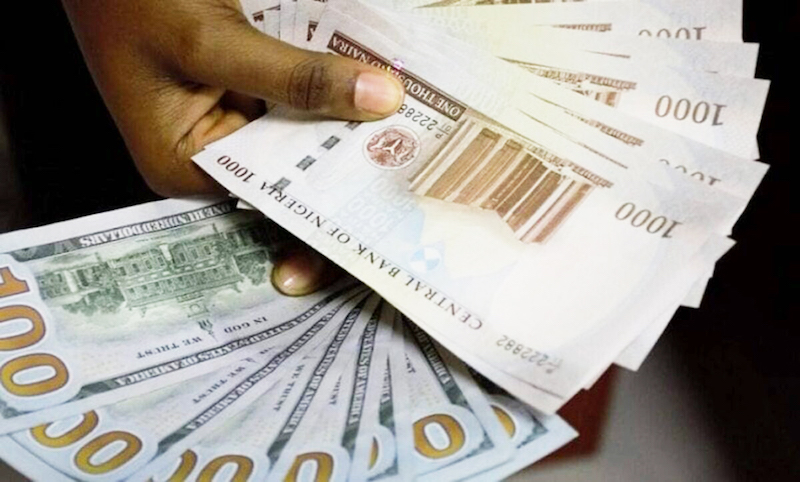Citing the recent increase in daily crude oil production, new inflows of capital and improved balance of payment, a member of the Central Bank of Nigeria’s (CBN) Monetary Policy Committee (MPC), Professor Murtala Sagagi, has said that the naira will likely keep appreciating and reach N1400/$1 before the end of this year.
In personal statements made by MPC members at the Committee’s July meeting, which was released by the apex bank on Friday, Sagagi stated that while the CBN’s measures have resulted in exchange stability as well as a slowdown in inflation, fiscal discipline and deliberate efforts to stimulate local productivity and employment are required to avoid a reversal of the gains so far achieved.
He said: “Previous structural reforms implemented over the last three decades have recorded limited successes in overcoming structural rigidities in Nigeria.
“Limited economic diversification and overreliance on debt by the government have worsened the vulnerability of the economy to shocks and fluctuations in global commodity prices.
“Since mid-2023, unlocking opportunities for economic diversification and associated welfare improvement has remained the ultimate goal of the current structural reforms.
“However, even with the removal of fuel subsidies and liberalisation of the exchange rates, the appetite for unfettered spending by the government has grown even stronger.
“In the first quarter of 2025, the country has witnessed an increase in total public debt from N144.67 trillion as of December 31, 2024, to N149.39 trillion as of March 31, 2025.
“The country’s debt profile is deteriorating and thus shrinking the fiscal space due to huge debt service costs.
“With the recent increase in daily crude oil production, new inflows of capital and improved balance of payment, the naira is likely to keep appreciating to reach the projected N1400/US$1 before the end of the year.
“The inflation moderation attained and the doggedness of the Central Bank of Nigeria (CBN) to ensure foreign exchange unification and disciplined liquidity management should be further harnessed to speed up growth and improve welfare.
“To avoid reversal of the gains so far achieved, fiscal discipline and deliberate effort to stimulate local productivity and employment are non- negotiable.”
Also harping on the need for increased monetary-fiscal policy collaboration to sustain the gains so far recorded under reforms introduced by the government, the Deputy Governor for Financial System Stability at the CBN, Philip Ikeazor, in his personal statement at the MPC meeting, said: “Though our projections have shown an expected annual average growth of 3.9 in real output and a continued moderation in inflation, I am of the view that there needs to be simultaneous expenditure-switching and expenditure- changing policies by both the Bank and the fiscal authorities to manage aggregate demand and supply disruption, to ensure the stability of the foreign exchange market.”
He added: “While the monetary-fiscal policy collaboration between the Bank and fiscal authorities and the ensuing non-inflationary growth have continued to moderate price pressures and stir growth, the national and sub-national governments must continue to address key growth and stable price enablers such as security, agriculture, and legacy infrastructure.
“However, in doing so, monetary policy needs to be proactive in terms of policy coordination and making decisions on rate adjustments to avoid fiscal surprises stemming from global uncertainties.”
Similarly, in his statement, CBN Governor, Olayemi Cardoso, said: “To improve monetary policy effectiveness, transparent engagement is essential to strengthening public confidence and ensuring that inflation expectations remain anchored.
“Coordination with fiscal authorities must also be deepened to ensure alignment in debt management, liquidity forecasting, and fiscal consolidation.
“Thus, we must sustain communication efforts to enhance stakeholder understanding of our strategy and expected outcomes.”















